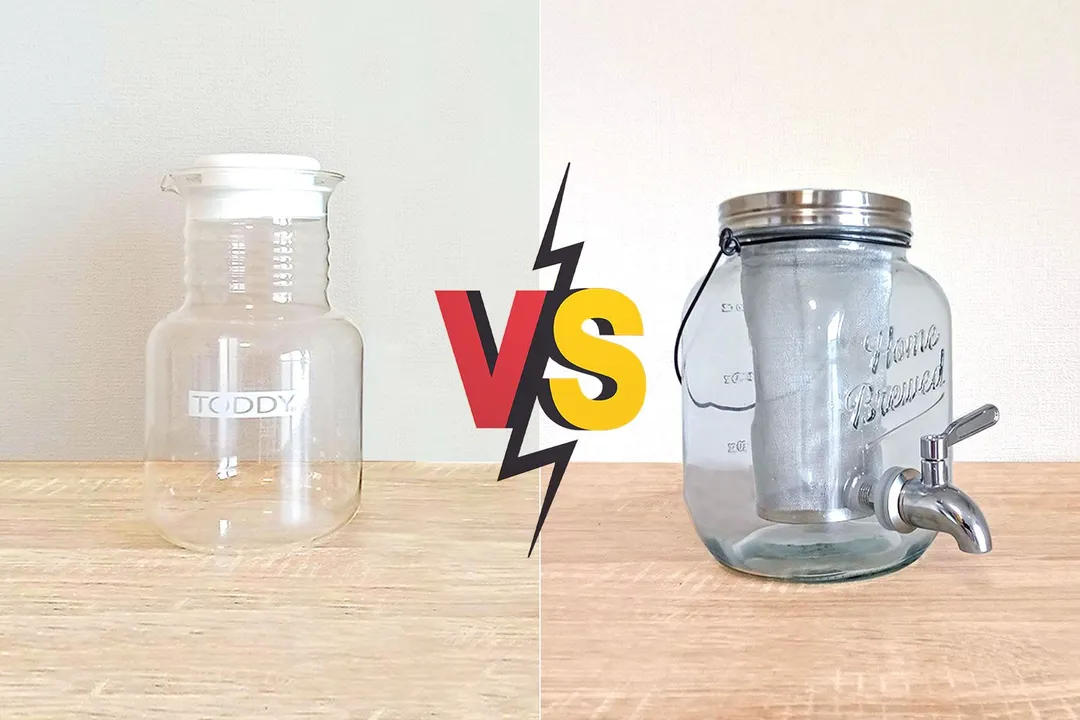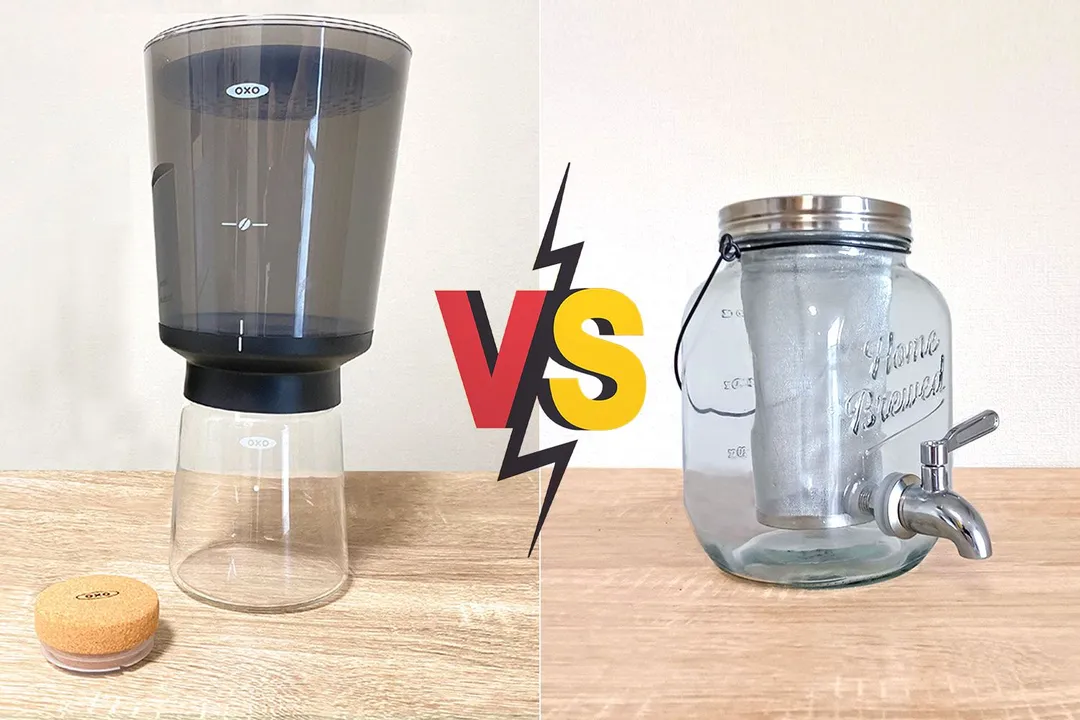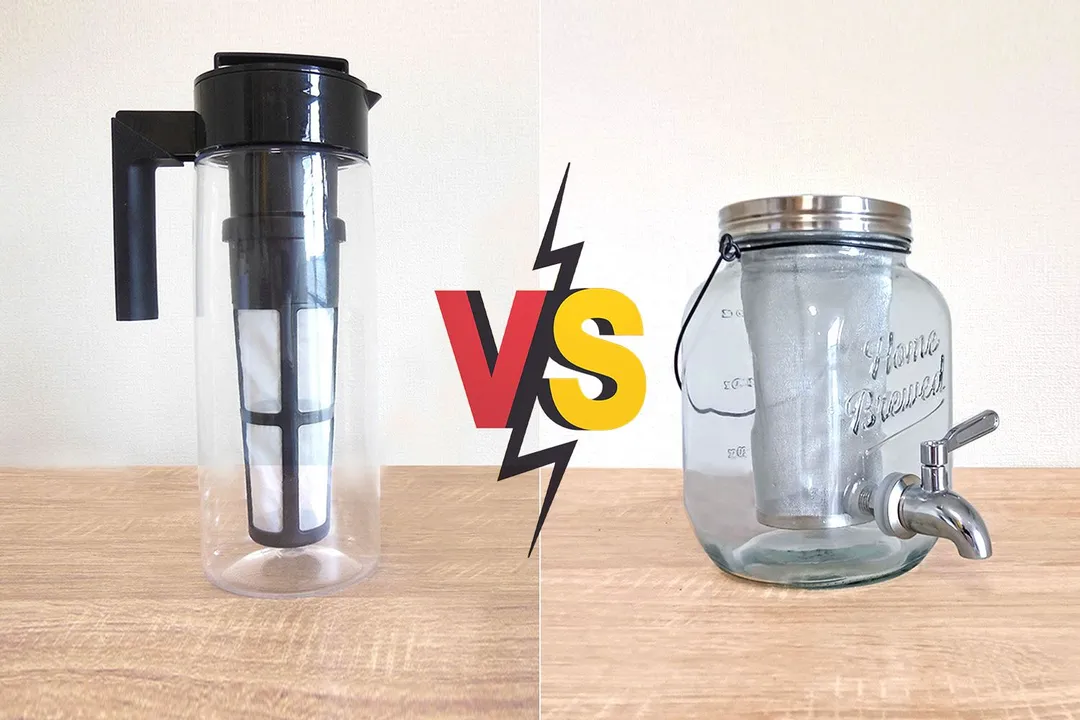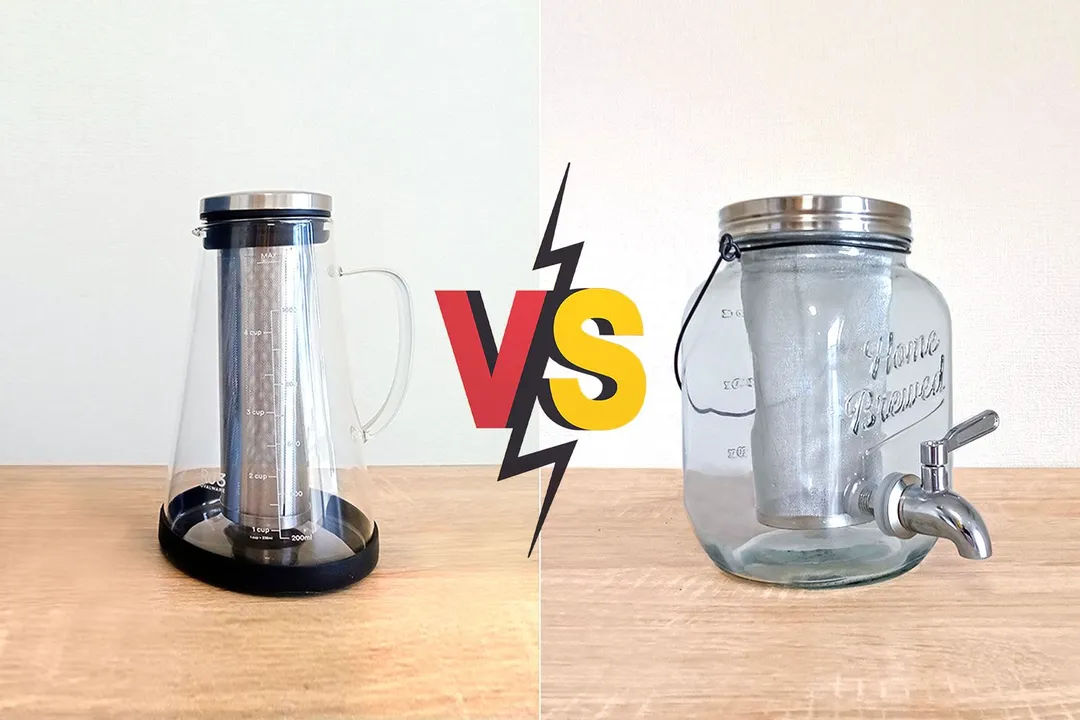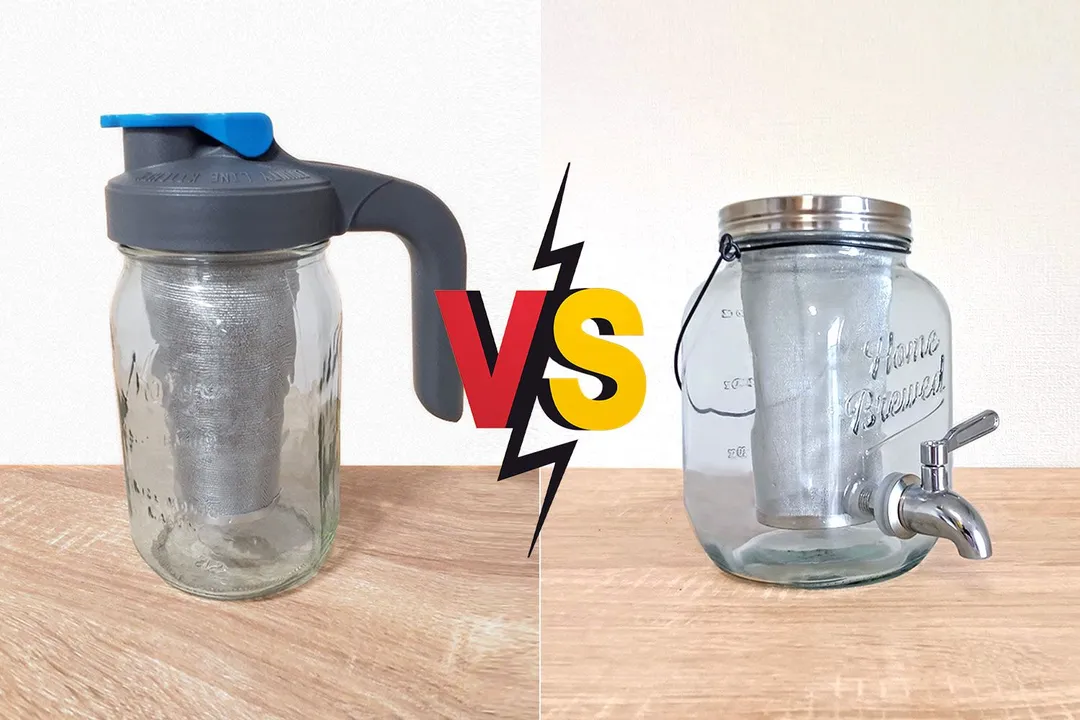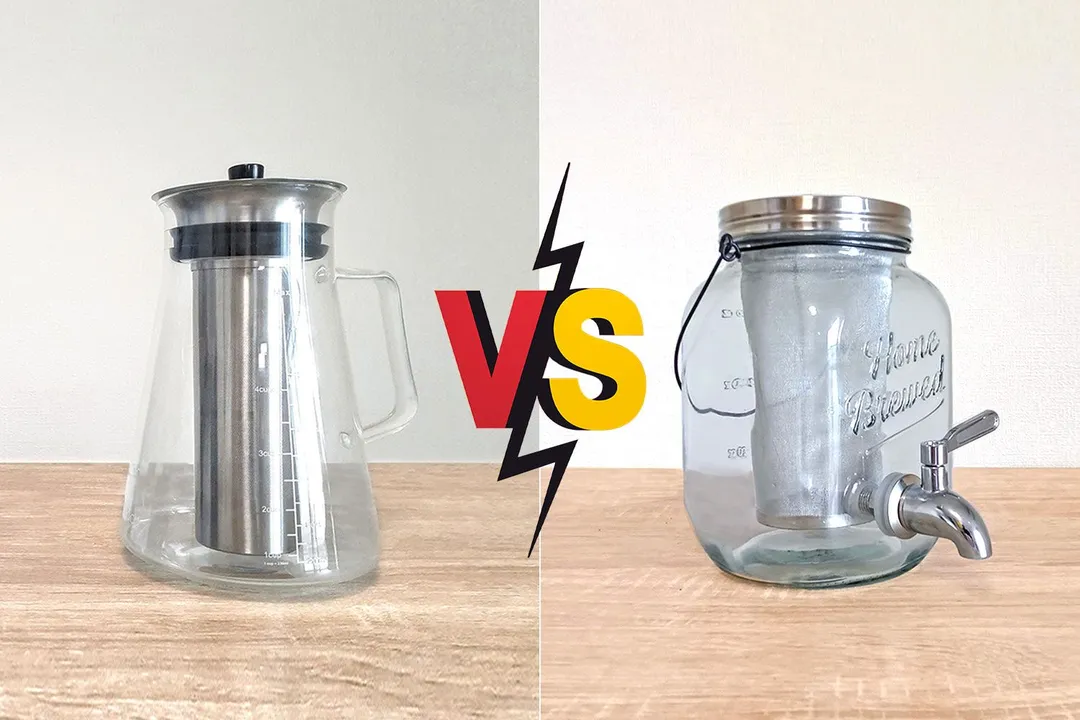Our recommendations are made independently through Research & Testing. We may receive commissions from purchases made via our links.
Bean Envy vs Willow & Everett Side-by-Side Comparison
Bean Envy cold brew coffee maker vs Willow & Everett mason jar. A choice between genuine product excellence and a generic knock off.
Bean Envy
Tested Using Methodology v1.0Willow & Everett 1 Gallon
Tested Using Methodology v1.0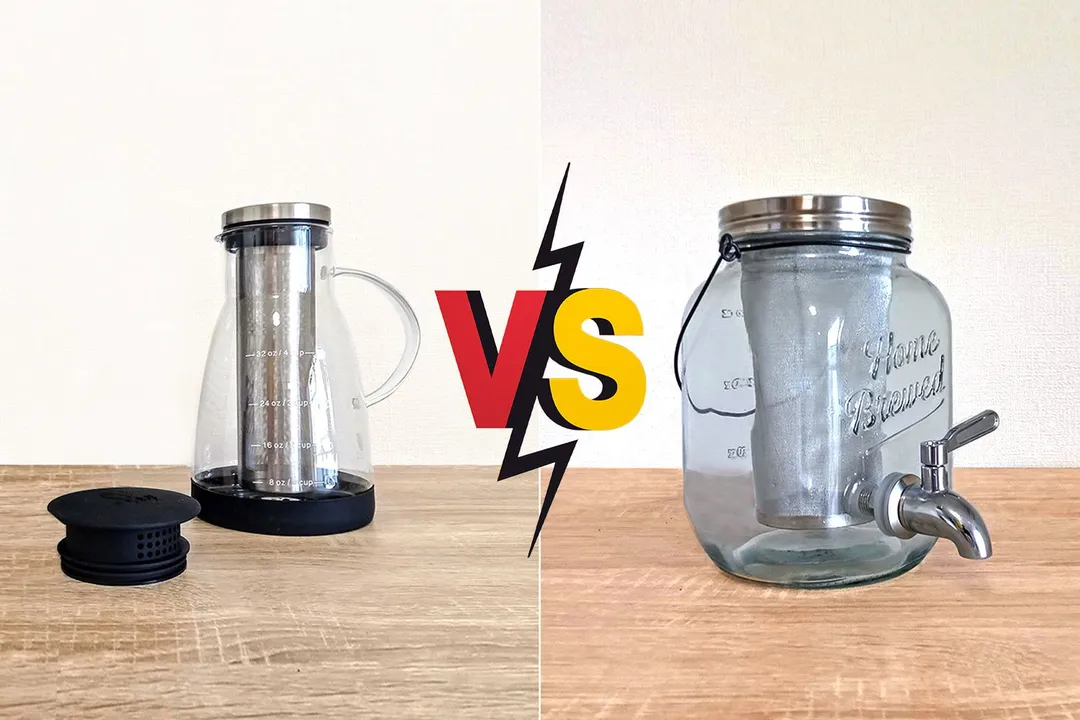
Overall Verdict
Bean Envy is a cold brew coffee maker that goes the extra mile. The silicone base pad is one of the best designed and it comes with two stoppers — one for brewing and the other, a pop silicone stopper, for after decanting the filter. The pop-up stopper doesn’t facilitate such a smooth pour, but everything else is first class.
Bean Envy, for its small size and carafe style design, has a typical brew ratio of around 1:12, and the quality of the brew is relatively good. Willow & Everett is more for making large batches of cold brew coffee. Its brew quality and strength, from a ratio of 1:9, is one of the best for any immersion filter brewer.
Willow & Everett, on the other hand, is a generic product and similar brewers are available under different names. The design quality is rather average, and while the spigot is a good idea, it doesn’t work so smoothly in practice. Moreover, at least 20% of the brew still needs to be dispensed from the top of the container.
Pros & Cons
- Two lid design
- Silicone base
- Handle design
- Measuring markers
- Funky design
- Brew ratio
- Brew quality
- Tap dispenser
- Filter bottom
- Pouring with silicone lid
- Lid design
- Weak glass around tap
- Tap is temperamental
- No literature
Key Specs
Where to Buy
*You help support HealthyKitchen101's product testing and reviews by purchasing from our retail partners.
Analysis and Test Results
Brew Quality
Bouquet
Drinkability

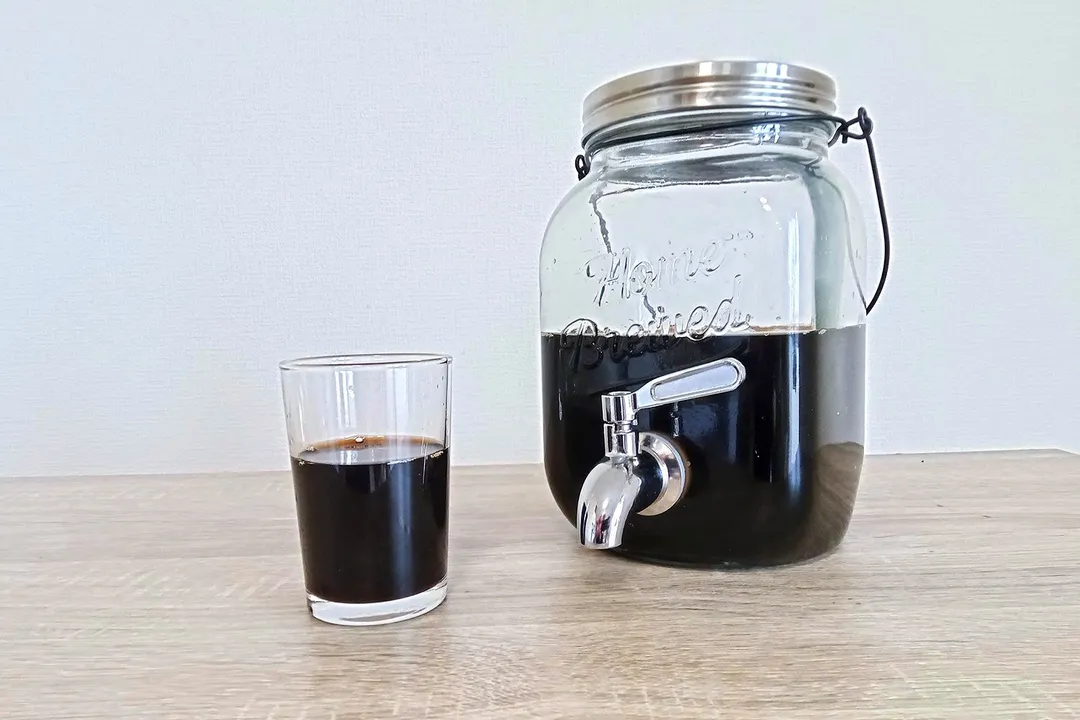
Sediment

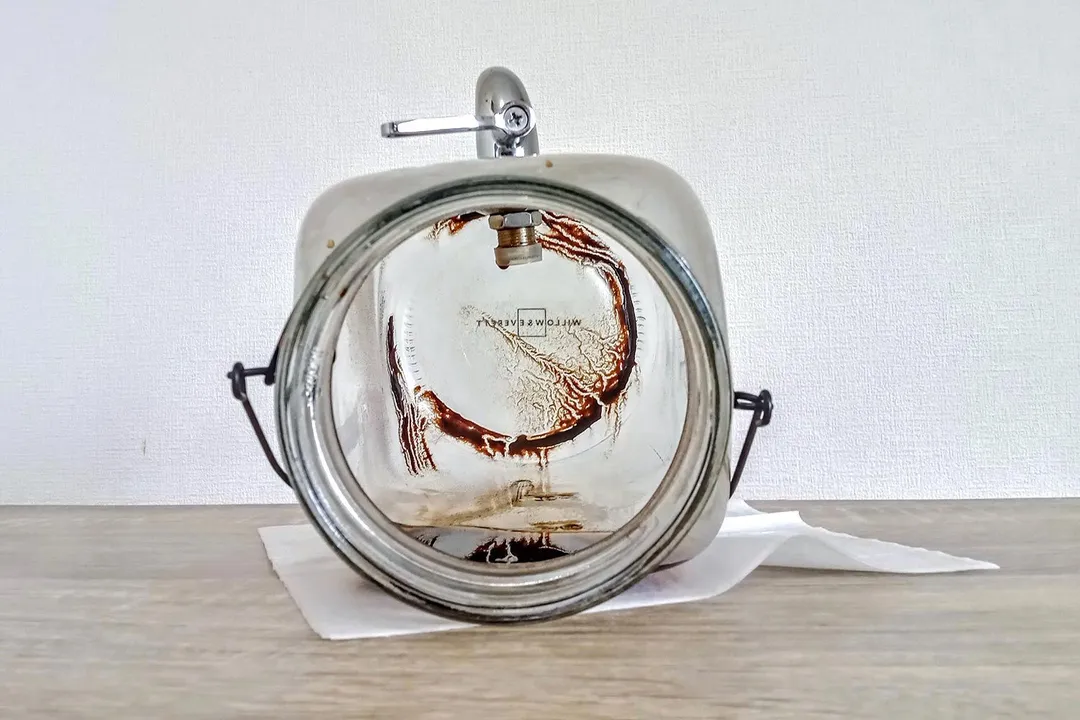
Design
In the Box
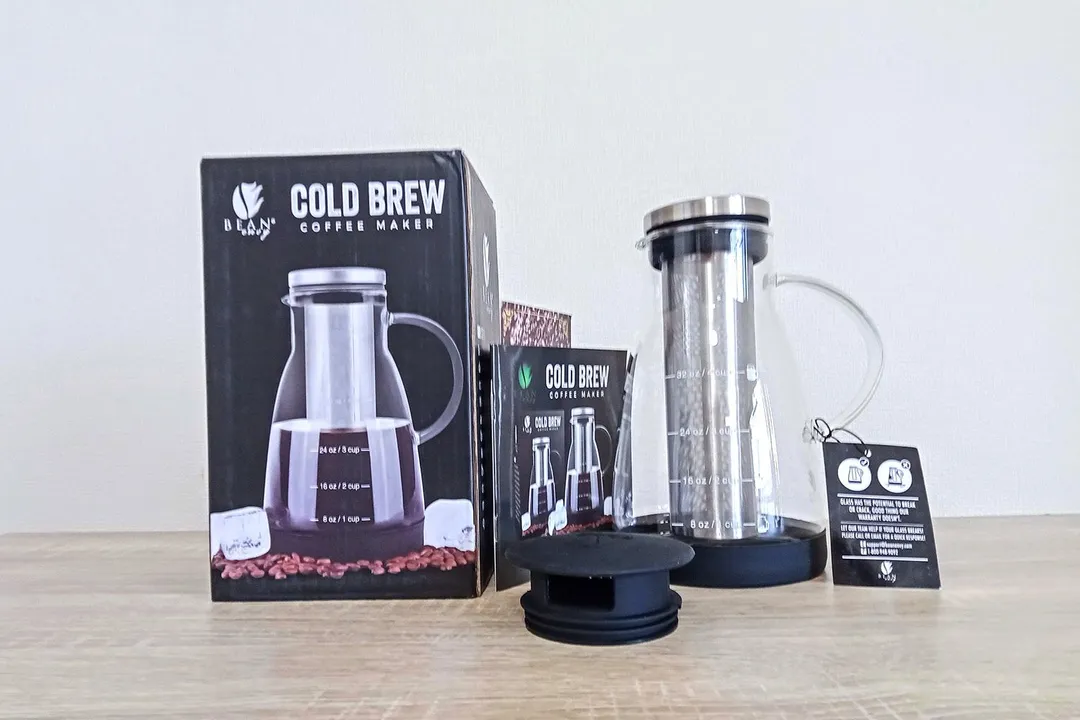

Decanter
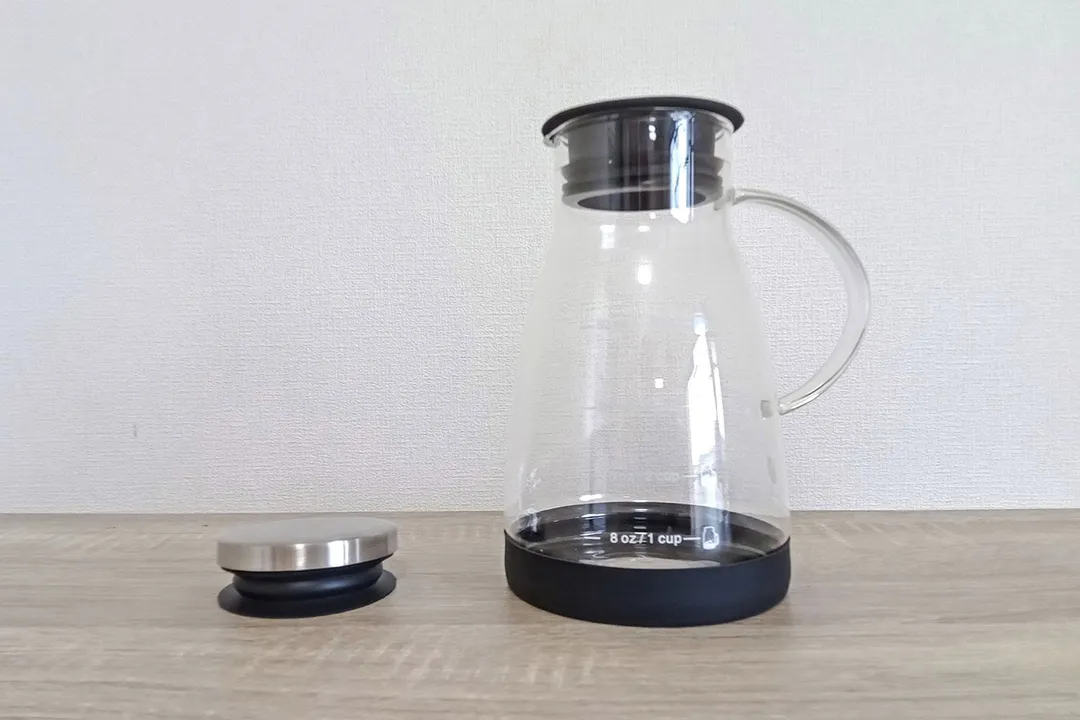
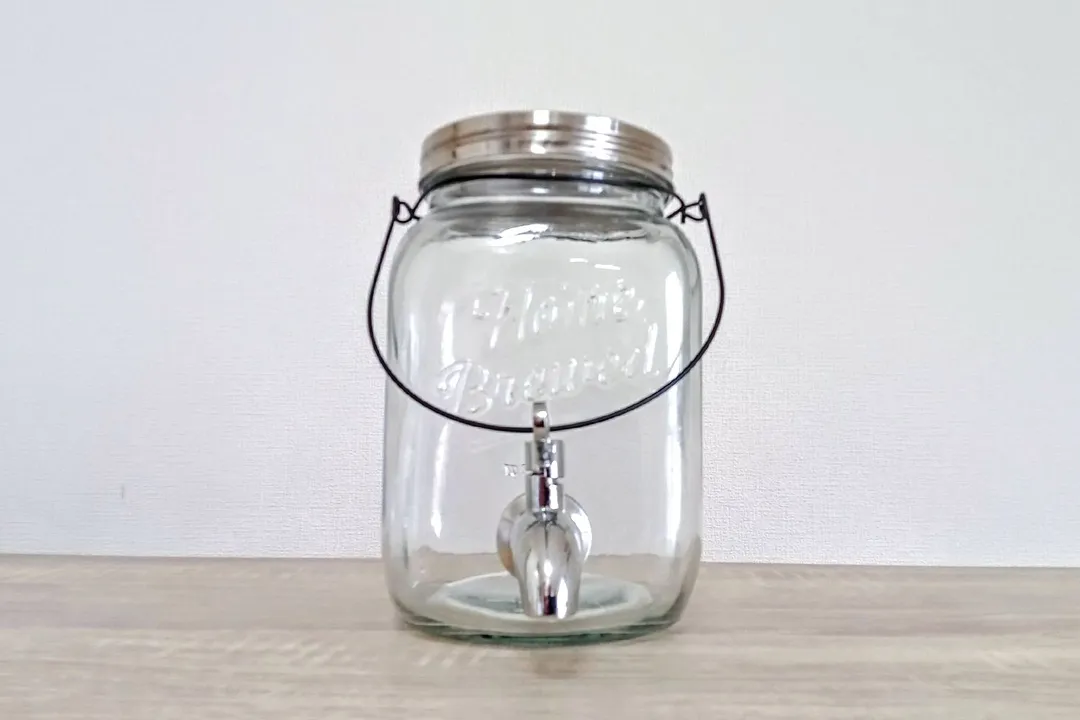
Stopper / Lid
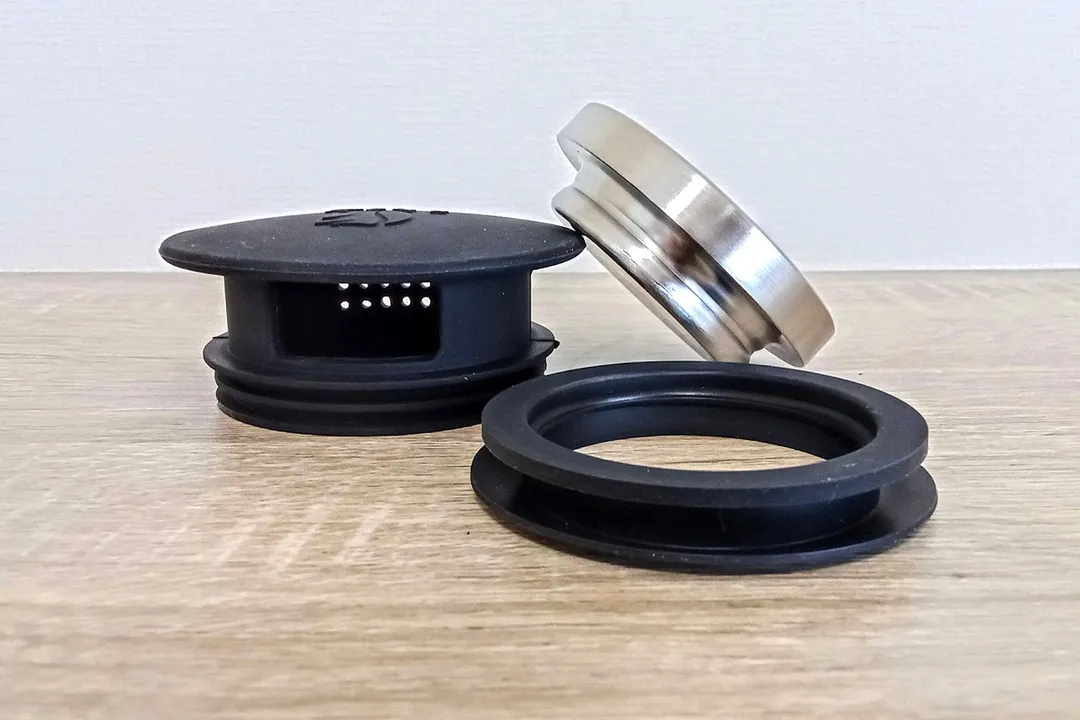
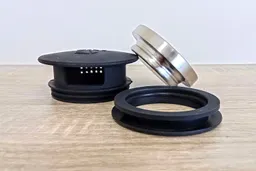
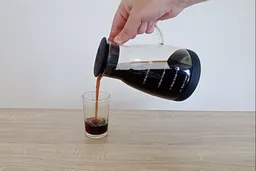

Filter




Build Quality
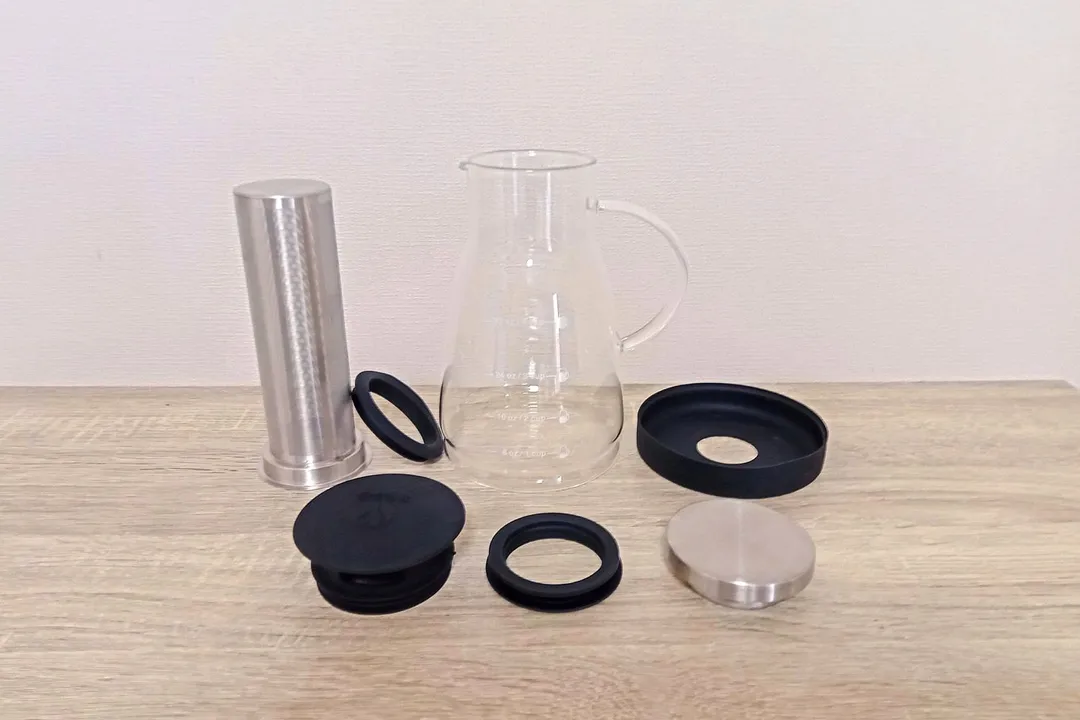

Usability
Brewing
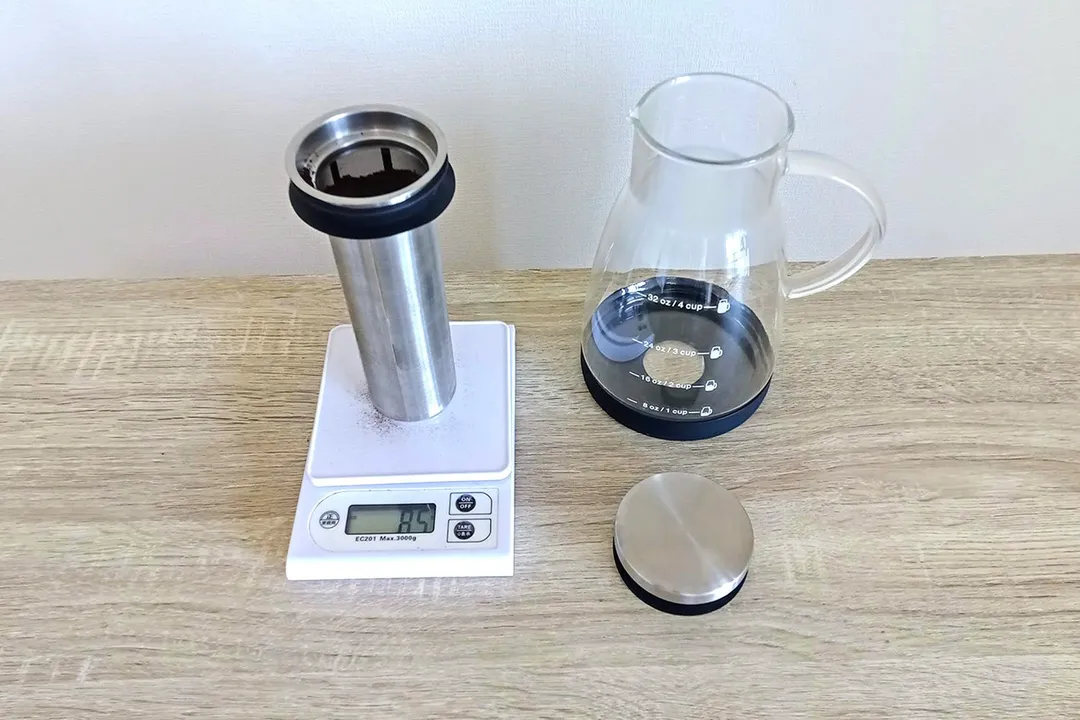

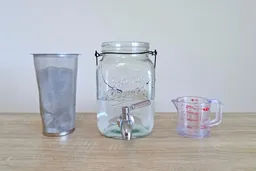
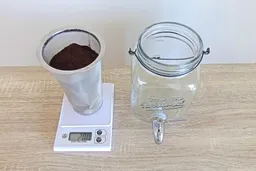
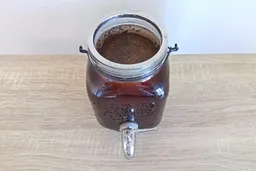
Decanting
Cleaning and Storage
Behind the Comparison
Roger Shitaki is a writer, author, and editor. His niches are household appliances, health & wellness, and travel. He’s a freelance contributor to a Tokyo lifestyle website and a leading ophthalmology magazine in Asia.

